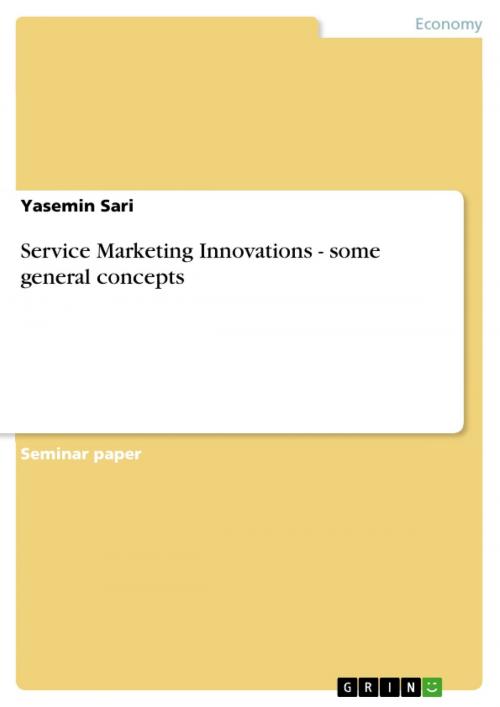| Author: | Yasemin Sari | ISBN: | 9783640798704 |
| Publisher: | GRIN Publishing | Publication: | January 13, 2011 |
| Imprint: | GRIN Publishing | Language: | English |
| Author: | Yasemin Sari |
| ISBN: | 9783640798704 |
| Publisher: | GRIN Publishing |
| Publication: | January 13, 2011 |
| Imprint: | GRIN Publishing |
| Language: | English |
Seminar paper from the year 2010 in the subject Business economics - Marketing, Corporate Communication, CRM, Market Research, Social Media, grade: 1,0, RWTH Aachen University, language: English, abstract: Terms like service quality, customer satisfaction and customer loyalty are often associated with competitive advantage, sustainability and long term profitability. Most people would agree that satisfied customers are the best candidates to evolve into loyal customers. However, even if customers are satisfied with the service there is still the possibility that they will switch to competitors if they expect a better service, a better quality or a higher value there. Nevertheless it is certainly that satisfaction is considered as a key factor to build up customer loyalty, because you can have satisfaction without loyalty, but it is difficult to have loyalty without satisfaction. Loyal customers mean a continuous and stable base of customers. Trying to obtain loyalty becomes inevitable for firms. There are many good reasons for this. The acquisition of new customers is expensive and therefore keeping customers loyal allows firms to amortize those costs. Furthermore loyal customers are often willingly to pay premium prices. They know the business and the services and therefore require less information themselves and moreover, as the most effective marketing channel, they serve as an information source for other customers on behalf of the firm. It is surely a fact that people tend to tell their experiences to other persons, run so-called word of mouth (WOM). Several researchers found that consumers engage in about twice as much WOM when they are dissatisfied in contrast to when they are satisfied, so that positive experiences are spread to nearly five persons, whereas negative experience will be passed to over 9 persons. There are various research articles and studies which determine the relations and interactions between satisfaction, quality, loyalty and WOM. In a given service context these are the cornerstones of service marketing. In the following, I will present some of these concepts and predominantly link them to three articles of Ferguson et al.
Seminar paper from the year 2010 in the subject Business economics - Marketing, Corporate Communication, CRM, Market Research, Social Media, grade: 1,0, RWTH Aachen University, language: English, abstract: Terms like service quality, customer satisfaction and customer loyalty are often associated with competitive advantage, sustainability and long term profitability. Most people would agree that satisfied customers are the best candidates to evolve into loyal customers. However, even if customers are satisfied with the service there is still the possibility that they will switch to competitors if they expect a better service, a better quality or a higher value there. Nevertheless it is certainly that satisfaction is considered as a key factor to build up customer loyalty, because you can have satisfaction without loyalty, but it is difficult to have loyalty without satisfaction. Loyal customers mean a continuous and stable base of customers. Trying to obtain loyalty becomes inevitable for firms. There are many good reasons for this. The acquisition of new customers is expensive and therefore keeping customers loyal allows firms to amortize those costs. Furthermore loyal customers are often willingly to pay premium prices. They know the business and the services and therefore require less information themselves and moreover, as the most effective marketing channel, they serve as an information source for other customers on behalf of the firm. It is surely a fact that people tend to tell their experiences to other persons, run so-called word of mouth (WOM). Several researchers found that consumers engage in about twice as much WOM when they are dissatisfied in contrast to when they are satisfied, so that positive experiences are spread to nearly five persons, whereas negative experience will be passed to over 9 persons. There are various research articles and studies which determine the relations and interactions between satisfaction, quality, loyalty and WOM. In a given service context these are the cornerstones of service marketing. In the following, I will present some of these concepts and predominantly link them to three articles of Ferguson et al.















